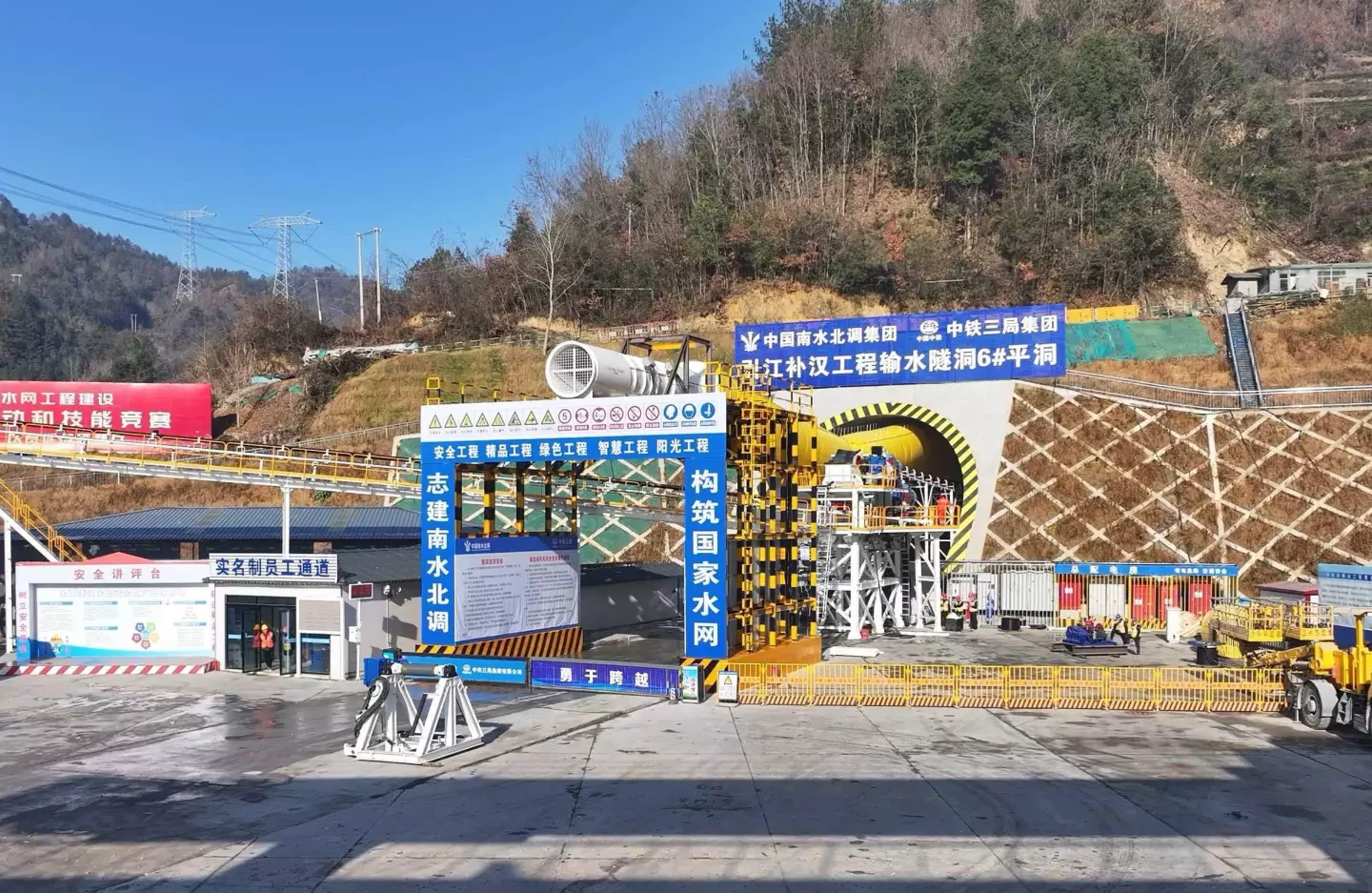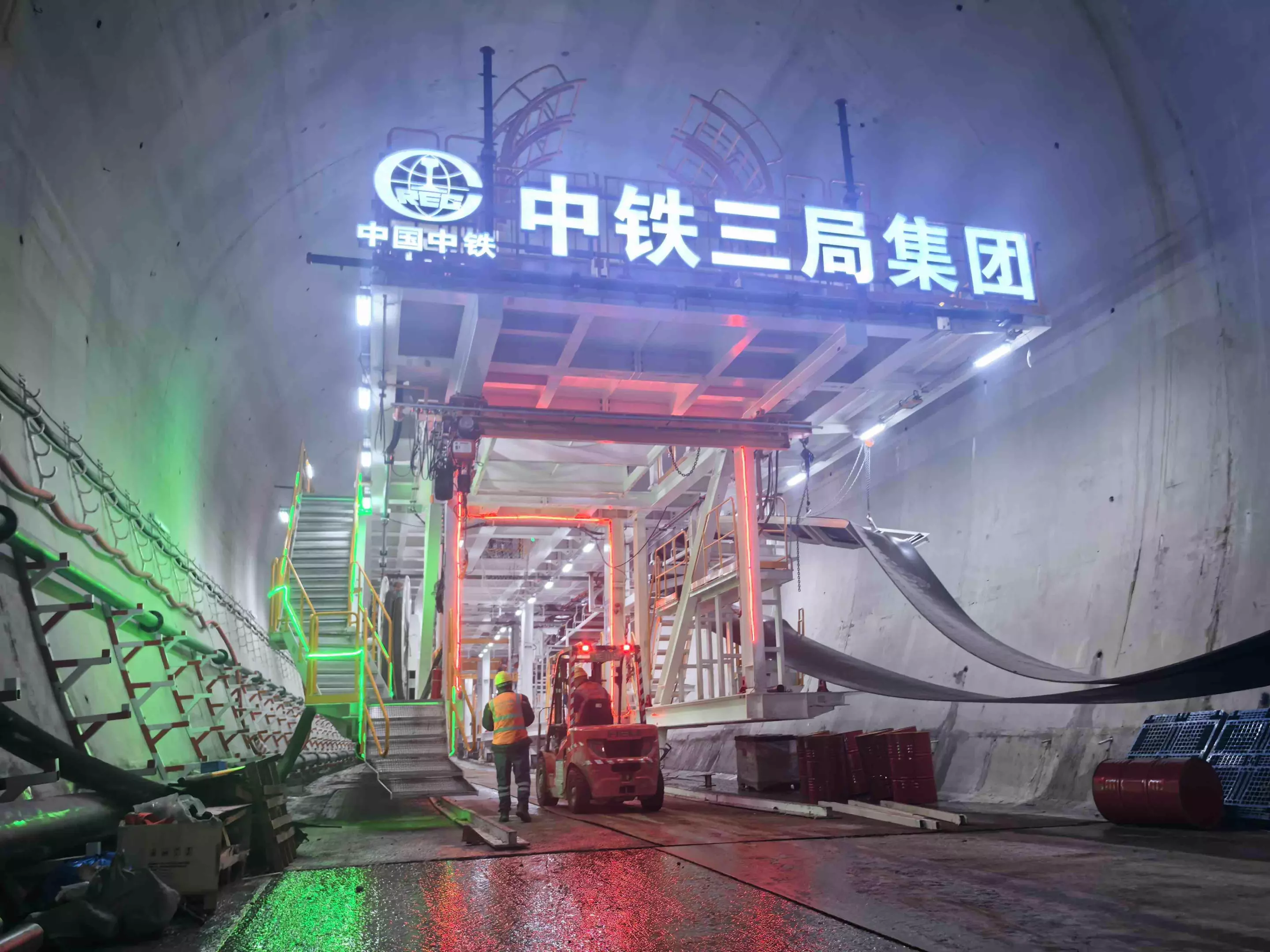Deep below the rugged landscape of central China lies an engineering marvel the size of a 60-story building, boring chunks of hard rock and soil, inch by inch, on a quest to bring water to millions of people.
The Jianghan Ping’an Tunnel Boring Machine (TBM) began operations earlier this month on January 5th, on what might not only be China's most ambitious water infrastructure project ever but perhaps the entire world.
The Jianghan Ping’an TBM isn't the biggest TBM ever built and it doesn't have the largest diameter like the Shanhe TMB, but what it lacks in the world-record-holding department, it makes up for in technological efficiency and adaptability.
That being said, it does hold one Chinese record: It's the largest dual-shield hard rock TBM China has ever built at 590 ft (180 m) and weighing in at 7.8 million pounds (3.54 million kg).
Dual-shield means it doesn't have to stop for any reason outside of some unexpected emergency. It's able to simultaneously excavate and install tunnel segments making it incredibly fast for a TBM – about 0.00022 mph (0.00036 km/h); slower than watching paint dry. Or in tunneling terms, about 853 ft (260 m) per month, which again, isn't record-setting, but it's a reasonable pace in hard-rock conditions. The kicker is that while it's boring along at a sloth-sleeping pace, it's also completing the tunnel in its wake – something that faster TBMs aren't able to do – expediting the project significantly.

The mission is a 10.3-mile (16.6-km) section of a 121-mile (194.7-km) tunnel called the Yangtze-to-Hanjiang Water Diversion Project – part of the South-to-North Water Diversion initiative – allowing the flow of water from the Yangtze River northward to the Hanjiang River in the arid northern regions of China, making it the largest water transfer project to have ever been attempted on Earth.
The project has three routes: eastern, central, and western. The Yangtze-to-Hanjiang is part of the central route.
Northern China, which is home to many major cities and large agricultural zones has long suffered from overuse of water and drought. Diversion is their answer.
The longest river in China, the Yangtze River, flows entirely within the country and is the third longest river in the world. It ranks 6th in the world for average discharge, flowing nearly twice as much water through its banks than the Mississippi River in the US due to its large rainwater-collecting basin.
The project will draw water from the Three Gorges area of the Yangtze and redistribute this water to areas where water scarcity is a real issue, though balancing the economic and environmental aspects of diverting so much water poses a significant challenge. Careful planning has been done by Chinese officials to mitigate these risks.
The China Railway Third Bureau is overseeing this part of the project and expects completion of the tunnel by 2030.
Source: ST Daily





